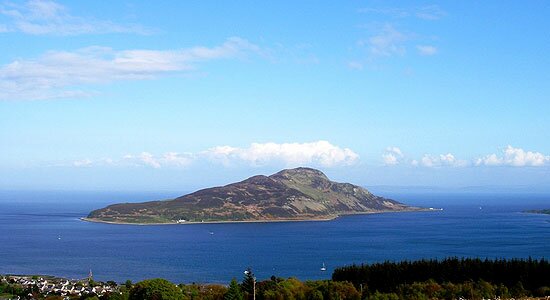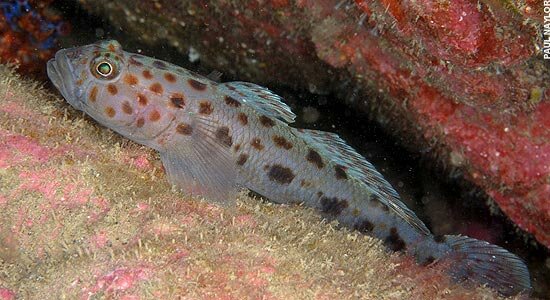Tag Archive for 'marine protection zones'
Talks are at an advanced stage between the Foreign Office, the Bertarelli Foundation and the Blue Marine Foundation about funding the creation of the largest marine reserve in the world around the British Indian Ocean Territory.
Watch a video of the Chagos here:
Chagos Marine Protected Area from Jon Slayer on Vimeo.
The Bertarelli Foundation, presided over by Ernesto Bertarelli, whose team twice won the America’s Cup, has agreed to provide £3.5 million in funding to cover the policing of the new Marine Protected Area, the creation of which was one of the last acts of the outgoing Labour administration.
The coalition has been faced with finding ways of making good the shortfall caused by ending lucrative tuna fishing licences which were providing £750,000 a year in revenue so a no-take reserve could be established in what has been described as Britain’s Galapagos or Great Barrier Reef.
No contracts have yet been signed between the Bertarelli Foundation, Blue and the Government but they are in the process of being drawn up and the Foreign Secretary and the Bertarelli Foundation approved the deal in principle last week.
Since the announcement of the creation of the reserve by David Miliband, when Foreign Secretary, there has been the discovery by scientists from the Zoological Society for London of a significant concentration of sea mounts within the 200 mile limit of the BIOT, many of which are expected to be hotspots for biodiversity.
Alex D Rogers of ZSL said: “Our modelling of the global distribution of seamounts indicates that there are up to 86 large seamounts and over 200 smaller knolls in the Chagos area. Seamounts are often important hotspots of biological activity in the oceans and may host diverse communities of animals in coral gardens or cold-water coral reefs. Furthermore, our modelling of the suitability of deep-sea habitat for octocorals (sea fans and gorgonians), indicates that the Chagos area is also highly favourable for these animals. This raises the exciting prospect that through closing the Chagos Archipelago and surrounding waters to fishing, significant deep-water habitats may have been protected within the Indian Ocean, a region subject to widespread and potentially increasing exploitation of deep-water resources.”
Henry Bellingham, Parliamentary Under Secretary of State and Minister for the Overseas Territories at the Foreign Office, said “This Government is committed to the Marine Protected Area in the British Indian Ocean Territory. As the world’s largest marine reserve, the MPA will bring huge environmental benefits to the Indian Ocean and to the world. “It will double the global coverage of the world’s oceans benefiting from full protection. We hope that the UK’s example encourages others to do the same in other vulnerable areas. We are very grateful to the Bertarelli family, their foundation and to the Blue Marine Foundation for their interest and we look forward to working with them. This Government wants to form innovative partnerships with the private sector to deliver ambitious objectives.This is a great example of how this could work in practice.”
Charles Clover, founding trustee of the Blue Marine Foundation, said: “Towards the end of last year I was beginning to doubt whether a marine protected area around the Chagos archipelago, which includes half the remaining unspoiled coral reefs in the Indian Ocean, would ever come into being, even if one was declared. I was worried that in a time of austerity no incoming government could sign up to the public spending involved. I told George Duffield and Chris Gorell Barnes, two of the producers on our film, The End of the Line, that this amazing breakthrough in the protection of the oceans might now not happen because of what is to a government a relatively small amount of money.”
Charles continues “I said surely there has to be someone, perhaps even a single individual, who takes the plight of the oceans seriously enough and has the money to fund this? George went out and found Ernesto Bertarelli and his foundation who have the vision and the pockets to match. Hats off to them. The Indian Ocean, its fisheries and coral reefs are not in good shape and the protection of such a fabulous and still largely unspoiled area in the middle of the ocean will help to protect its biodiversity and give its fisheries some respite against attrition. We hope other nations around the Ocean follow suit.”
The Blue Marine Foundation was set up as a result of The End of the Line and before the Chagos funding crisis came along to look at private sector solutions in the oceans which could create reserves or improve the sustainability of fisheries. It will be trying to put together other deals and to persuade more boats to fly its flag in the future.
The Blue Marine Foundation was founded by Charles Clover, George Duffield & Chris Gorell Barnes in order to fund the creation of a global network of marine reserves and to provide private sector solutions for the sea.
The Blue marine Foundation has appointed 5 trustees: -Tom Appleby, Lord Deben, DR Arlo Brady, Kate Goldsmith, and Mark Rose.

London, 1.4.10.
A marine reserve that will double the amount of the world’s oceans under protection was announced today by David Miliband, the British Foreign Secretary.
The protected area will extend 200 miles around the British Indian
Ocean Territory, a dependant territory in the middle of the Indian
Ocean, and will include a “no-take” marine reserve where commercial
fishing will be banned.
The 55 tiny islands of the Chagos Archipelago, as the islands are also
known, sit in some of world’s cleanest seas, surrounded by nearly 50
per cent of the remaining undamaged coral reefs in the Indian Ocean.
The marine protected area announced by Mr Miliband will be a quarter of a million square miles in size, some 70,000 square miles larger than the one around the North Hawaiian Islands declared by George W. Bush just before he left office.
Until the very last minute concerns about opposition from Mauritius,
which has a long-standing claim to the islands, had threatened to
derail the announcement of the reserve or at least postpone it beyond the next general election, expected to be called next week, as had the unresolved court case against Britain by Chagossians evicted in the creation of a military base on one of the islands, Diego Garcia.
Announcing the creation of the reserve, Mr Miliband said “I am today instructing the Commissioner of the British Indian Ocean Territory to declare a Marine Protected Area.
“Its creation is a major step forward for protecting the oceans, not
just around BIOT itself, but also throughout the world. This measure
is a further demonstration of how the UK takes its international
environmental responsibilities seriously.
“I have taken the decision to create this marine reserve following a
full consultation, and careful consideration of the many issues and
interests involved. The response to the consultation was impressive
both in terms of quality and quantity. We intend to continue to work
closely with all interested stakeholders, both in the UK and
internationally, in implementing the MPA.
“I would like to emphasise that the creation of the MPA will not
change the UK’s commitment to cede the Territory to Mauritius when it is no longer needed for defence purposes and it is, of course, without prejudice to the outcome of the current, pending proceedings before the European Court of Human Rights.”
Well over 90% of those who responded to the consultation made clear that they supported greater marine protection.
Scientists also advised that BIOT was likely to be key, both in
research and geographical terms, to the repopulation of coral systems along the East Coast of Africa and hence to the recovery in marine food supply in sub-Saharan Africa.
BIOT waters would continue to be patrolled by the territory’s patrol
vessel, which will enforce the reserve’s conditions. Alistair Gammell of the Pew Environment Group, a founding member of the coalition of environmental organizations known as the Chagos
Environment Network (CEN), which campaigned for the reserve, said: “We are thrilled by the U.K. government’s decision to declare the Chagos in its entirety as a no-take protected area.”
“The oceans desperately need better protection. In 2010, the
International Year of Biodiversity, the U.K. has secured a
conservation legacy which is unrivalled in scale and significance,
demonstrating to the world that it is a leader in conserving the
world’s marine resources for the benefit of future generations.”
Greenpeace biodiversity campaigner Willie Mackenzie said: “These
coral seas are a biodiversity hotspot in the Indian Ocean, and
unquestionably worthy of protection from destructive activities like
fishing. And this marine reserve will provide a safe refuge for many
globally endangered species such as sharks and turtles.
“The creation of this marine reserve is a first step towards securing
a better and sustainable future for the Chagos Islands. But this
future must include securing justice for the Chagossian people and the closure and removal of the Diego Garcia military base.”
By Charles Clover

- Howard Wood is the chairman of COAST - Community of Arran Seabed Trust
I have battled and campaigned against the short sightedness of Government fishing policy for 15 years. In September 2008 Scotland got its first, small no take zone in a part of Lamlash Bay off the Isle of Arran. The rest of the Bay was to be designated a Marine Conservation Area but it has not happened yet.

Lamlash Bay, Isle of Arran, where a no take zone has been established
This despite the entire project, Lamlash Bay Community Marine Conservation Area, being trumpeted through the press in January 2008 by Richard Lochhead, SNP Minister, as an excellent joint Community, Government & Fishermen project.
The inertia appears to be due to Mr Lochhead and civil servants worrying about upsetting the trawling & dredging fishing industry.
The Clyde Fishermen’s Association walked away from talks to implement the scheme in January 2009 and thereafter Marine Scotland, the department that overseas the marine environment, has refused to allow the Marine Conservation Area to even appear on the agenda of meetings.
Subsequent meetings have been cancelled or postponed. Procrastination is the name of the game. Continue reading ‘Change of government fishing policy is possible, but very difficult’

Environmental protection groups have launched an 11th hour bid to get better legal protection for marine life around Britain’s shores.
They will be protesting in Westminster today as the new Marine and Coastal Access Bill completes its passage through Parliament.

Leopard spot goby in waters off the British coast
The groups say it will be the last chance to insert tougher measures into the Bill which will guarantee protection for the most important areas in the marine environment.
The RSPB, The Wildlife Trusts, the Marine Conservation Society and WWF have been campaigning for comprehensive legislation for almost a decade.
They claim the current proposals are too weak and won’t prevent the steady decline of many marine species and habitats in UK waters due to over fishing and industrialisation. Continue reading ‘Marine Bill: Environment groups launch 11th hour bid for better protection’

Government plans for ‘protection zones’ around the UK coastline are inadequate and won’t halt the dramatic decline of marine species, according to environment groups.
- WWF: New marine proposals are “a drop in the ocean”
They have warned that much tougher legislation and more ambitious marine protection zones are needed to help preserve sea life.
The EU has ordered member states to set up special zones under its Marine Strategy Directive, in a bid to halt the slide in biodiversity caused by overfishing and industrialisation.
The first UK offshore sites are due to be announced soon but critics say they fall far short of Government promises to set up a network of marine reserves where stocks would be safeguarded against overfishing. Continue reading ‘Environment groups say UK marine protection zone plans are inadequate’

![]()




